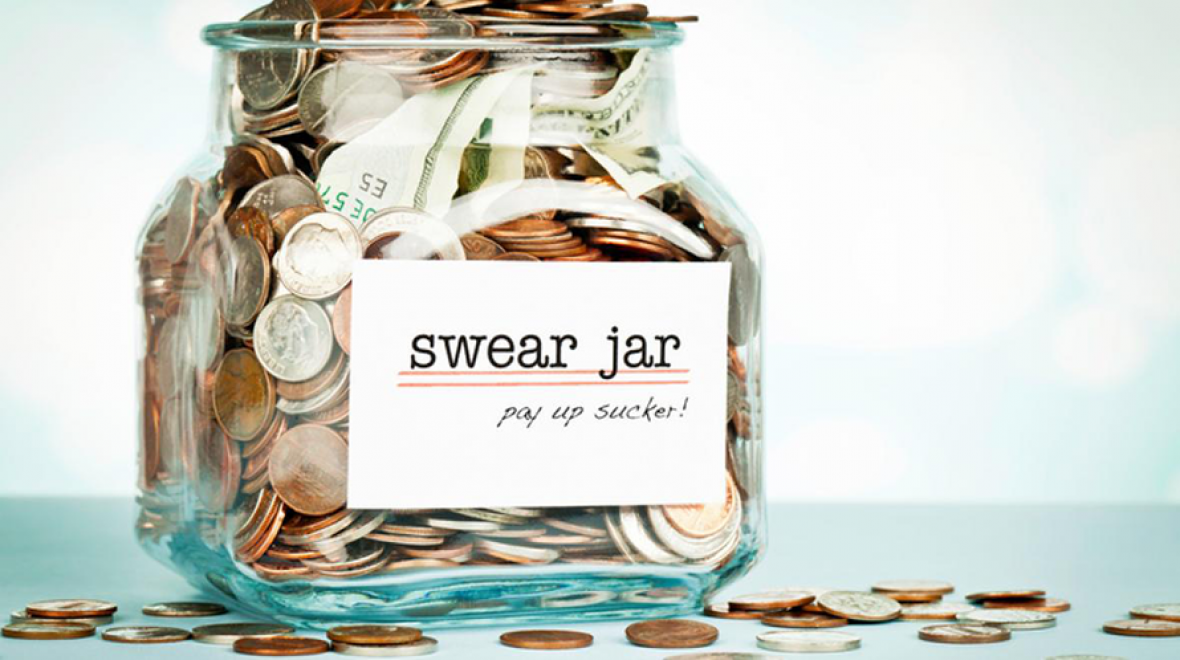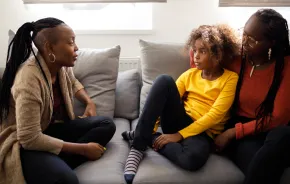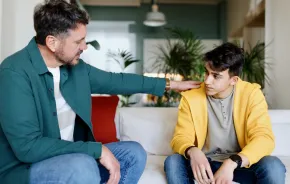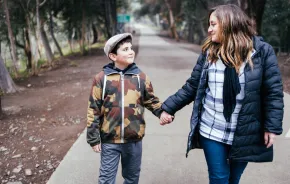
Grade school teachers teach math and science. Grade school friends teach profanity. That’s how it works. As kids grow up, so does their language. And it gets more complex every year. An outright ban on profanity may work for a 7-year-old but not on that same kid at 14.
Where are we supposed to draw the line on vulgar language?
To find out, I sat down with several kids and asked them what they thought about swearing. Did they swear at home? At school? Did they have friends who swore a lot? Was all swearing bad?
Even though I spoke with each child separately, all agreed that intent was the driving force behind whether or not language was bad. They divided intent into three categories:
In response to pain
“Like when you stub your toe. You want to shout something but the only words you have in your mind at the time are four-lettered.” —C., sixth grade
I do this. My husband does this. When my daughter was 11 months old she did this. Granted, it came out as a bunch of gibberish but you could tell it was four-lettered gibberish.
Often there’s an element of surprise that makes this type of profanity (almost) funny. Like when my 12-year-old is hopping around shouting Fuuuuuu — before clamping his mouth shut because the pain of stubbing his pinky toe on the couch isn’t nearly as bad as the pain of Dad calling him out for saying the F-word, especially in front of his mother.
This spontaneous profanity may be shocking but it has been scientifically proven to provide a measure of pain-relief. In our house, we usually ignore this type of swearing because we’re too busy grabbing an ice pack to care.
Peer-to-peer bonding
“Like when someone hits you with a kickball really hard on purpose and then you turn to your friend and say, ‘That guy is being a total A-hole’ but instead of ‘A-hole’ you use the real word.” —S., sixth grade
This is the type of swearing meant exclusively for friends and peers. No adults allowed type stuff. But I hear it. Oh, you better believe I do. My kid is 12. There are a lot of complicated ideas that you have to think about when you’re 12 — school, independence, Minecraft, bullies, Skyrim, girls, boys — and you have to look cool while doing it.
Because 12-year-olds can be stupidly loud at times, their conversations are part of my world whether I like it or not. I could easily storm into their circles and proclaim NO SWEARING ALLOWED! They would stop, sure. But there are plenty of studies positively correlating this type of swearing to honesty, verbal fluency and intelligence.
If all I ever paid attention to were the swear words, would I ever learn what they actually thought about A-holes kicking balls into their friends’ stomachs? Or how maybe that one particular A-hole isn’t so bad when they’re in math class but the other one is always causing problems?
I keep a sharp ear out for slurs or malicious intent, but unless the conversation takes a nasty turn, I don’t tend to interfere with this type of swearing. Granted, this is peer-to-peer language so it needs to be kept to the privacy of their own space. If I hear that talk in my living room, someone is going to get lectured.
Racial/sexist slurs or swearing as a personal attack
“The people I know that use two or three swear words per sentence are generally just rude people.” —J., 10th grade
This profanity is meant to hurt. The simpler term for it is verbal abuse. Unanimously seen as an egregious insult, every child I spoke to concluded that this is the type of swearing meant to hurt and that they did not approve of it. Verbal abuse is never OK and it is not allowed in our home.
Because this type of swearing is about anger at someone else, anyone caught using it is in for a long-winded Mom-lecture about behavior and good decision-making. (Maybe I’ll bring up disappointment if I think it’s necessary but it is rarely necessary.)
Usually after 10 minutes I’m picking up the pieces of a sad and guilty child who didn’t want to be mean but also didn’t know how to deal. Which I get. Kids, even older ones, are still relatively new to being human. Occasionally you have to remind them that causing harm to another person hurts. It’s supposed to hurt. That’s why we don’t do it.











